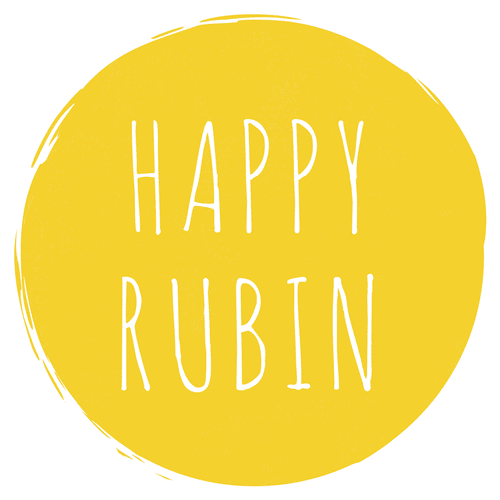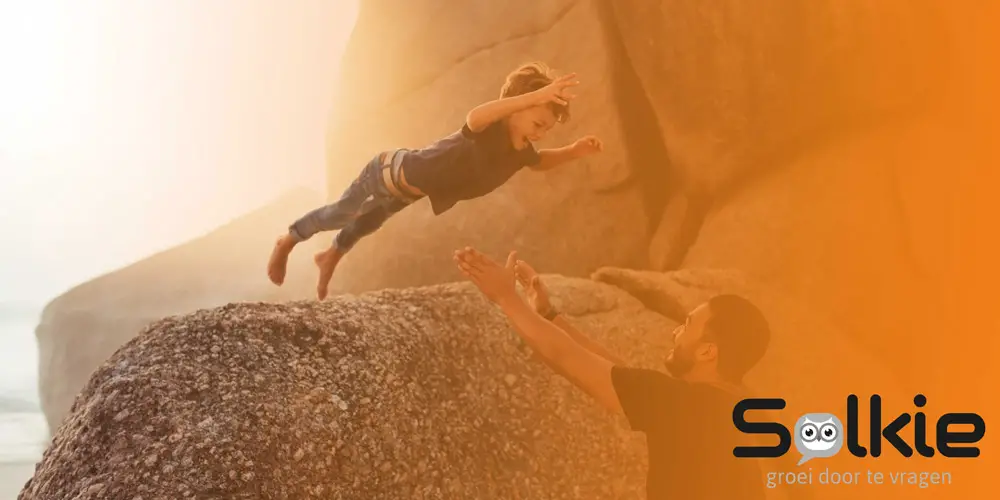![How To Deal With Sensory Overload [9 Tips For Overstimulation]](https://happyrubin.com/wp-content/uploads/2019/12/ik-ben-overprikkeld-150x150.jpg)
Double Bind Psychology: Illusion of Choice [52+ NLP Examples]
![Double Bind Psychology: Illusion of Choice [52+ NLP Examples]](https://happyrubin.com/wp-content/uploads/2016/08/pexels-photo-2.jpg)
“Playing heads or tails? With head I win, with coin you lose.” Psychology’s double binds are an illusion of choice. You can most simply use this technique in your communication with the word ‘or’, where both choices are desirable (for you). Let’s explore this further.
Perhaps a valid comment: because two choices are again cliché, it is sometimes better to give three choices. They are also more difficult to resist because it requires more effort on the part of the client. In this article you will learn a great number of examples of the NLP technique ‘Double Binding’, which is a form of presuppositions . This is part of NLP training.
“I can’t feel …”
“How does it feel that you can’t feel?
Can you love it? Can you fall in love with not knowing how to do that at all? ‘
Contents of this page:
Double bind: techniques and examples of this psychological phenomenon
- You answer these questions very well. That means either that I am a fantastic teacher or that I am a phenomenal teacher.
- “When is it best for us to meet?” This is essentially a presuppositon, which is much more subtle and less traceable than a literal double bind.
- Shall we sign the contract here OR over there in the office with a nice cup of coffee?
- “I don’t care if you’re {positef} or {positive}.”
“I don’t care if you’re {positive} or {even better}.”
With the above examples you also add a language softener and reverse psychology . - Perhaps you liked some trainers … And you liked other trainers even better.
- Perhaps some trainers made you very happy … And perhaps other trainers made you even happier.
- Do you want to close the door now or later?
- Will you notice that you already speak differently now, or will you notice it later?
- Disjunction: “I don’t know if you are going to give your full attention, or think about other useful experiences, or just relax and listen.” These are 3 positive options it seems like you were going to say something negative.
- This double bind is useful, for example, when your client has to go into a trance: “You are right in both cases. Whether you think you can’t, or maybe you think you can, you’re right in both cases. ”
- I don’t know if you will realize it sooner or a little later …
- I don’t know exactly how you will find that this insight is best for you. You should find out for yourself.
- You wonder which side of your body is the first to relax.
- Do you want to sit or stand when you go into a trance?
- It is no good if I tell your subconscious: learn this or learn that. Let him learn the way he wants to! In the order in which it wants to.
- Do you prefer A or B to reach C?
- Shall I explain it to the rest before we start, or do we do it now?
- A client could not say no because her father died because she said no at the time. Bandler put her in a double bind by saying, “I want you to say no to someone across the room.” “No, I don’t want to do that.” “You just said no. Did I die? ”
- “I have no confidence. Just self-doubt.” “So you have confidence in self-doubt, confidence in failure, and confidence that something will go wrong. Where do you place your confidence?”
- “Would you rather brush your teeth before or after you take a bath?” This one is extra nice because it presupposes that both activities will be done.
- You don’t have to do it perfectly, of course, so you’re going to do very well.
- For example, after putting a positive part on the left hand and a negative part on the right hand: “Which hand is lighter? Left or right?”
- We go to the restaurant or to the cinema for our night out.
- Do you want to be in a deep hypnosis or at your own pace?
- A special one: “Would you rather go into hypnosis NOW or do you want to be in a trance?”
- While you are dreaming, or while awakening …
- Would you like to discuss matters further now or do you want to take a test ride first?
- You don’t need to know how hypnosis works to accept that you have an unconscious.
- I wonder if your eyes can close now … If your eyes want to close now (help with your arms too) … Then it’s totally okay. And if they aren’t closed now, they normally end closed, aren’t they?
- If your eyes aren’t closed, they usually end up closed, aren’t they? Okay.
- You can change as quickly or as slowly as you want.
- If you can’t think of at least one extra double bind right now, either one will come to mind very soon, or you’ll wonder when the next one will come to mind.
An observant client can use the Metamodel and say, “Who says I’m going to make it happen at all?”
Some trainers… made you happy, and some trainers made you even happier!
Presuppositions also cause ‘binds’
You put someone in a ‘bind’ by presupposing the first two questions and jumping directly to the third question:
- Have you stopped beating your wife yet? Answer the question. It’s a simple question: yes or no?
(Whether the other answers yes or no, in both cases he hit his wife.) - Would you like to enjoy a trance one more time now?
(Whether the other person answers yes or no, in both cases he has enjoyed a trance before.) - How much money do you think Company X has made by defrauding its customers?
(Whether the other answers yes or no, in both cases he has cheated on his customers.) - Do you know why women have more wisdom teeth than men? Do you think because they are wiser than men?
(The focus was on the question. So the following message slipped through: Women have more wisdom teeth. Plus, the why makes the argument stand firm. - More inputs with which you can create double binds through presuppositions: Who, Which, When, What, Why, Do you realize …?
When Bodidharma, the legendary founder of Zen, came to China, a disciple came to him and said “I have no peace of mind. Please pacify my mind.” And Bodhidharma said “Bring out your mind here before me and I’ll pacify it.” “Well,” he said, “when I look for it, I can’t find it.” So Bodhidharma said “There, it’s pacified.”
– Alan Watts
Double binds to create an illusion of freedom / choice
Use the sentences below before asking people to do something. This is useful for regular requests, and is extra elegant for high-demand requests. So start with words that evoke politeness and voluntariness.
- I want you to feel free to do the assignment the way it is explained.
- Feel free to limit yourself to the choices offered to you here.
- Feel completely free to give the bottle to me just the way I want it.
- Feel free not to, but this is the solution. / Feel free to donate to this cause. / Feel free to try it for yourself.
- Take all the time you need to complete within 5 minutes.
- I invite you to feel free to close your eyes.
- I invite you to feel free to do it exactly as it has been explained.
Those were all examples! Do you know more nice practical examples of double binds from psychology and NLP? Let me know in the comments.

![5 Best Self Care Tips For College Students [#1 Advice]](https://happyrubin.com/wp-content/uploads/2021/09/the-best-self-care-tips-for-college-students-440x264.jpg)
![How To Stick To New Year’s Resolutions: 9 Tips [Smart & Sure Ways]](https://happyrubin.com/wp-content/uploads/2019/12/tips-voor-goede-voornemens-440x264.jpg)
![How To Stop Being So Hard On Yourself [9 Great Tips]](https://happyrubin.com/wp-content/uploads/2019/12/we-moeten-zoveel-van-onszelf-en-anderen-150x150.jpg)

![19 Best Ice Breaker & Get-To-Know-Eachother Games [Fun & Simple]](https://happyrubin.com/wp-content/uploads/2018/02/leukste-ijsbrekers.jpeg)
![Becoming More Social: 41 Tips [Improving Social Skills] [List]](https://happyrubin.com/wp-content/uploads/2018/06/sociale-vaardigheden1.jpeg)
![How to start a conversation with anyone: 15 tips [Making contact]](https://happyrubin.com/wp-content/uploads/2017/08/gesprekstechnieken1.jpeg)
![372 Friend Tag Q&A Questions [Best Friend Quiz]](https://happyrubin.com/wp-content/uploads/2019/05/best-friend-tag-vragen-voorbeelden.jpg)



![Clingy & controlling behavior of partner/date [Extreme examples]](https://happyrubin.com/wp-content/uploads/2020/06/claimerig-gedrag-van-partner-eigenschappen-en-voorbeelden-150x150.jpg)

![How to recognize if a man is in love [Signals & his body language]](https://happyrubin.com/wp-content/uploads/2020/05/verliefd-gedrag-van-mannen-herkennen-150x150.jpg)


![Free will and religion / theology [Verses & Quotes on free will]](https://happyrubin.com/wp-content/uploads/2020/10/religion-on-free-will-quotes-1050x640-1-150x150.jpg)

![Dealing With Setbacks & Hardship [Lessons & Examples]](https://happyrubin.com/wp-content/uploads/2018/11/omgaan-met-tegenslag-tips-hoe-dan.jpeg)
![NLP Agreement Frame: Use these exact sentences [Examples]](https://happyrubin.com/wp-content/uploads/2020/10/agreement-frame-nlp-1125x640-1-440x264.jpeg)
![122 Best Comebacks In Any Situation [Best Examples]](https://happyrubin.com/wp-content/uploads/2020/06/beste-comebacks-technieken-tips-440x264.jpg)
![Using Hypnosis to Stop Smoking [HowTo]](https://happyrubin.com/wp-content/uploads/2020/05/stoppen-met-roken-door-hypnose-150x150.jpg)
![Presuppositions language pattern: meaning & examples [NLP]](https://happyrubin.com/wp-content/uploads/2020/04/wat-zijn-vooronderstellingen-150x150.jpg)
![Peripheral Vision: Meaning & Exercise [Essential Skill]](https://happyrubin.com/wp-content/uploads/2020/04/perifeer-zicht-trainen-tips-150x150.jpg)

![How To Start A Coaching Business [21 Smart Tips]](https://happyrubin.com/wp-content/uploads/2018/11/coachingpraktijk-starten-tips.jpeg)
![How to make dreams come true? [33 tips to realize dreams 100%]](https://happyrubin.com/wp-content/uploads/2018/05/dromen-mijlpalen.jpeg)
![How To Become Rich? 27 Millionaire Tips [Guaranteed To Work]](https://happyrubin.com/wp-content/uploads/2018/01/hoe-kan-ik-rijk-worden.jpeg)
![77 Best Online Marketing Tools [Recommendations] [Also Free]](https://happyrubin.com/wp-content/uploads/2018/08/beste-onlne-marketing-tools-tips.jpeg)
![Complete List Of Virtues & Qualities [Including Explanation]](https://happyrubin.com/wp-content/uploads/2018/12/kernkwaliteiten-uitleg.jpeg)
![Being Attentive: How Do You Do That? [Meaning & 9 Tips]](https://happyrubin.com/wp-content/uploads/2019/05/attent-zijn.jpg)
![Being Conscientious: Meaning Of This Virtue [Explained]](https://happyrubin.com/wp-content/uploads/2018/07/Consciëntieus-persoon.jpg)


![Best Books About Burn-Out [Top 10] [Update 2026]](https://happyrubin.com/wp-content/uploads/2020/06/beste-boeken-over-burnout-lijst-440x264.jpg)
![Best Self-love Books [Top 10] [Update 2026]](https://happyrubin.com/wp-content/uploads/2020/04/beste-boeken-over-zelfliefde-aanraders-440x264.jpg)
![Life changing books: 10 books that change your life [2026 Update]](https://happyrubin.com/wp-content/uploads/2020/03/levensveranderende-boeken-tips-150x150.jpg)
![Top 10 Best Books: Recommendations Per Genre [2026 Update]](https://happyrubin.com/wp-content/uploads/2019/12/best-books-per-genre-150x150.png)
![Best Books On procrastination: Must Reads [List] [2026 Update]](https://happyrubin.com/wp-content/uploads/2019/11/beste-boeken-over-uitstelgedrag-tips-150x150.jpg)
![Joe Dispenza: Events To Attend [2026 & 2026] [All Info]](https://happyrubin.com/wp-content/uploads/2020/02/joe-dispenxa-events-440x264.png)
![Best Online Study Options [Online Education Top List]](https://happyrubin.com/wp-content/uploads/2019/03/best-home-study-options-440x264.png)
![Teachable Review & Experiences 2026 [Bad Online Training Tool?]](https://happyrubin.com/wp-content/uploads/2020/02/Teachable-review-ervaringen-150x150.png)
![Audible Review, Experiences & Special Discount [Scam?]](https://happyrubin.com/wp-content/uploads/2020/01/audible-review-ervaringen-150x150.png)
![Guest Posts Wanted [Free & Always Directly Accepted]](https://happyrubin.com/wp-content/uploads/2019/05/gastbloggen-regels.jpg)
